US' dangerous occupation of northeastern, southern parts of Syria must end: FM Mekdad
Syria’s foreign minister says occupation of northeastern and southern parts of his country by US forces is dangerous and must come to an end.
Faisal Mekdad made the remarks in a Monday meeting with Iran’s parliament speaker, Mohammad Baqer Qalibaf, in Tehran, stressing that the Syrian government and nation consider Iranian parliament speaker’s visit to the war-ravaged country, which took place in late July, a sign of Iranians’ backing for the Syrian nation and parliament.
Elaborating on the efforts made by Damascus to put an end to occupation of certain regions in the northwestern part of the country, Syria’s top diplomat added, “US occupationism in northeastern and southern parts of Syria is also dangerous and must end.”
“They are trying to impose their dominion and colonialism on our countries through soft war and with the help of their various tools in the region, including nongovernmental organizations that are affiliated to them, economic instruments and paying off certain people,” the Syrian foreign minister said.
He emphasized that the US was forced to leave certain parts of the region after their failure to advance its goals through terrorism, direct interference in regional countries and establishing military bases, and it is now resorting to other means to achieve its goals.
The Syrian foreign minister said the US has imposed inhumane sanctions on Iran, Syria and other countries in order to bring them to their knees, adding that Washington seeks to obtain whatever it has failed to achieve through military approaches via such bans.
Qalibaf: Developing economic cooperation most important issue at hand
Iran’s parliament speaker, for his part, said that at the present time, the most important issue for Tehran and Damascus is to boost bilateral economic cooperation.
Iran's top parliamentarian said, “It is evident that enemies of the resistance front are trying to gain through an economic war whatever they failed to obtain in the battlefield, and this is why we must try to be successful in economic and political fields.”
Qalibaf emphasized that Damascus needs to promote intra-Syrian talks to tackle security issues, expressing Iran's readiness to play a role in this regard through the Astana talks.
Kazakhstan's Foreign Minister Mukhtar Tleuberdi announced on November 4 that his country is set to host a fresh round of talks between the Syrian government and the opposition aimed at ending the years-long crisis.
The top Kazakh diplomat added that the meeting would bring together the guarantors of the Astana process namely Iran, Russia and Turkey.
This would be the 17th round of talks between the Syrian government and the foreign-backed opposition in Kazakhstan.
The 16th international high-level meeting on Syria, which took place in the Kazakh capital in July, involved delegations of the guarantor countries, the Syrian government and the armed opposition.
The talks are moderated by Russia and Iran – as allies of the Syrian government – and Turkey, which sides with the opposition. The trio, in the earlier round of talks, agreed on the establishment of a mechanism to support the truce, underlined the importance of maintaining the national sovereignty of Syria, and stressed that there was no military solution to the conflict in the Arab country.
The Astana negotiations, which were also attended by the UN special envoy on Syria, had focused mainly on bolstering a Syria-wide ceasefire that has been in place since December 30, 2016.
At Damascus' request, Iran has been providing military advisory support to the Syrian military in its counterterrorism operations. Russia has been carrying out an aerial campaign in Syria, similarly in coordination with Damascus, since September 2015 to further boost the military’s anti-terror performance.
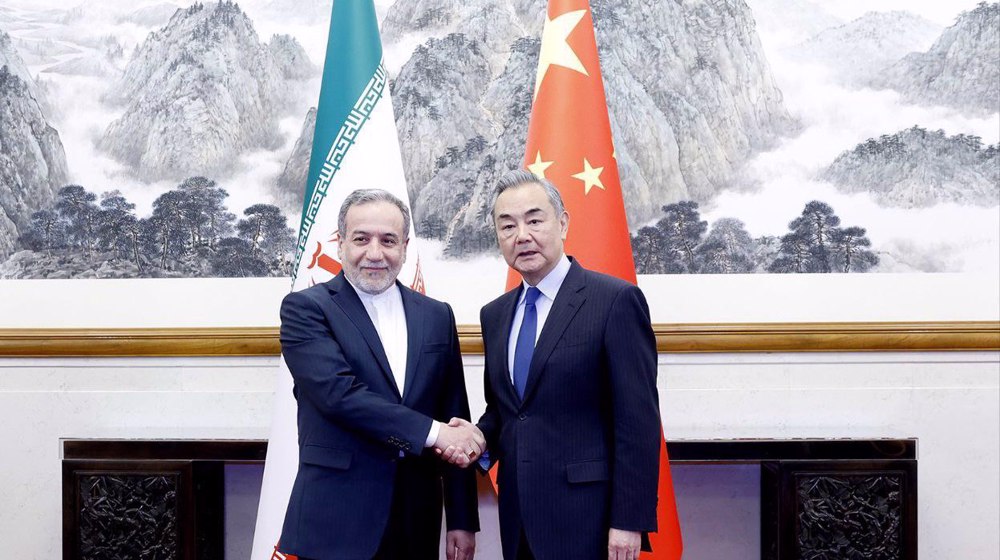
China supports Iran-US indirect talks, defends Tehran's nuclear right
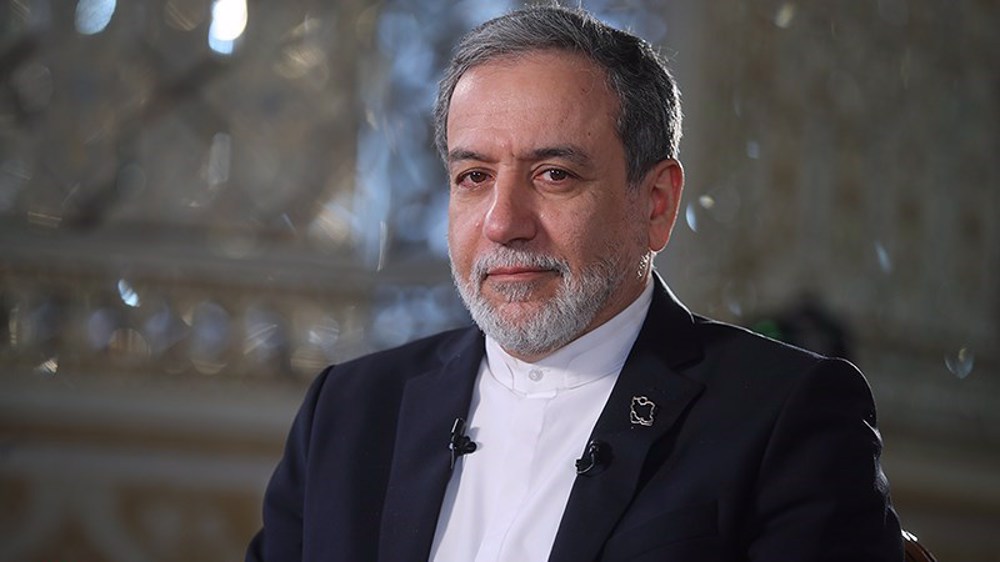
Iran’s FM warns of Israeli attempts to derail diplomacy through various tactics
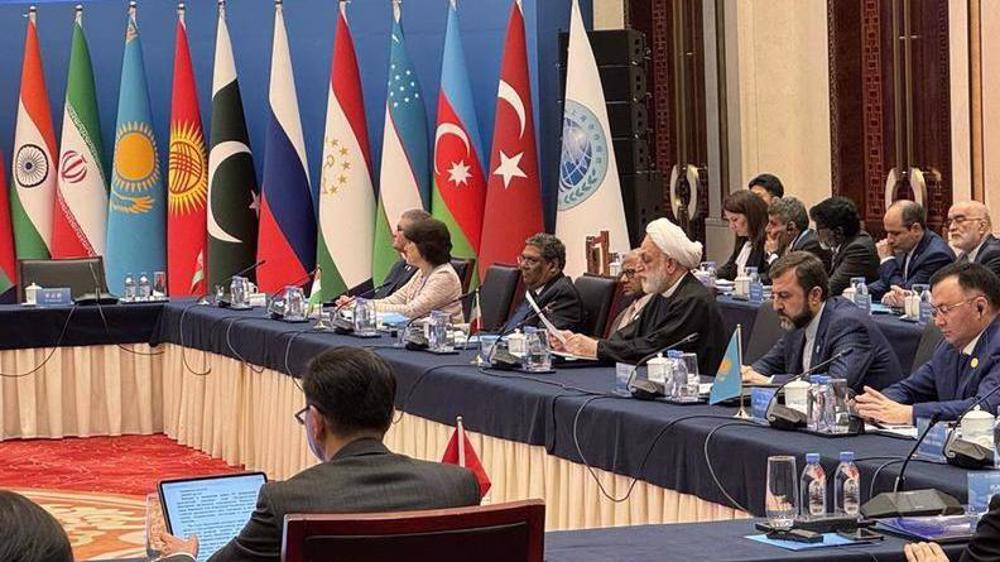
Iran unveils legal strategies for SCO states to counter challenges
China supports Iran-US indirect talks, defends Tehran's nuclear right
VIDEO | Gaza’s dire conditions hit unprecedented levels
VIDEO | Press TV's news headlines
VIDEO | Pakistan’s business and cultural front unites for Gaza: Nationwide shutdown, boycott announced
US jets carry out more aggression against Yemen
Syrian militants enslaving Alawite women in Idlib governorate: Report
VIDEO | US pro-Palestinian campus protest
VIDEO | Palestinian civil defense rejects Israel’s probe and exposes the crime


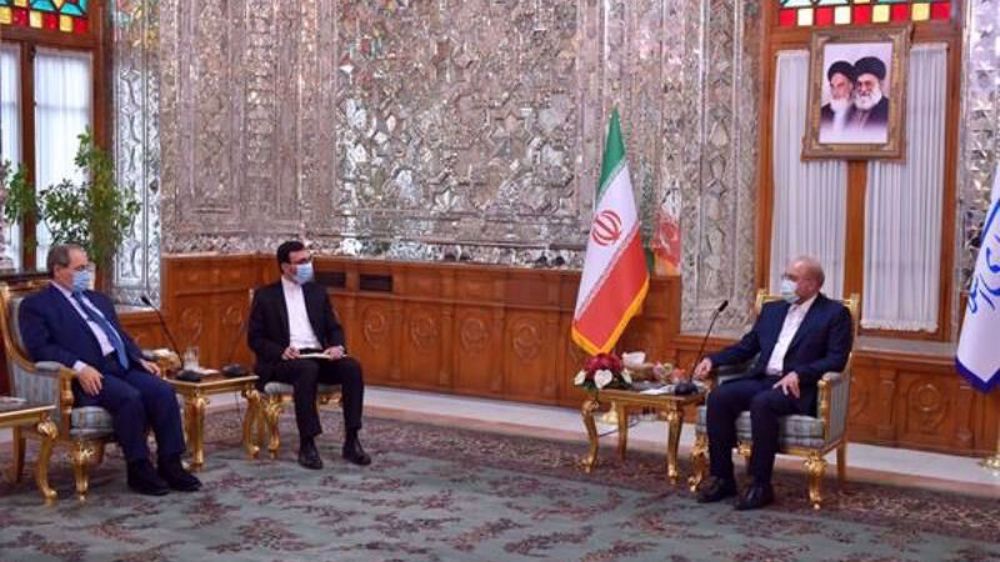
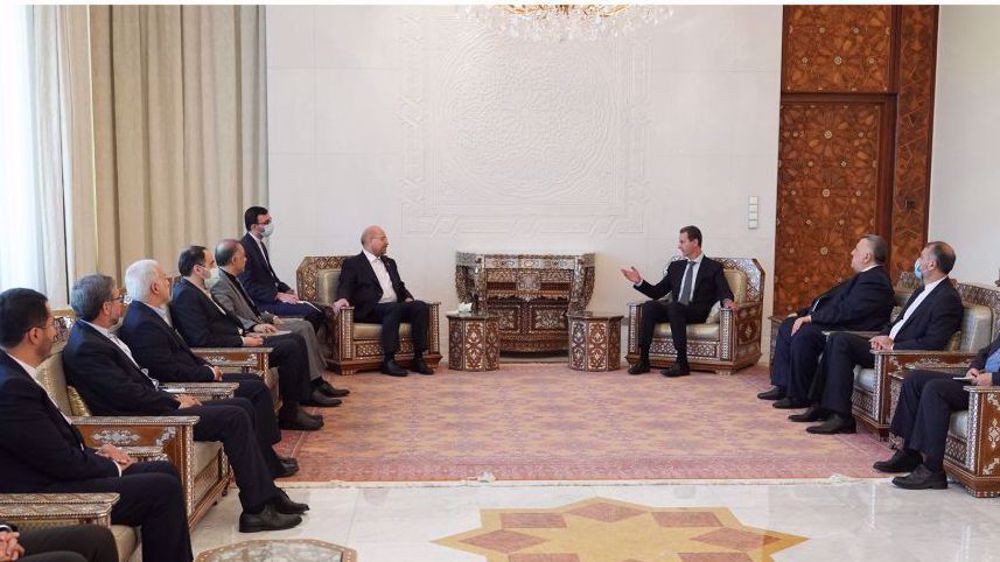
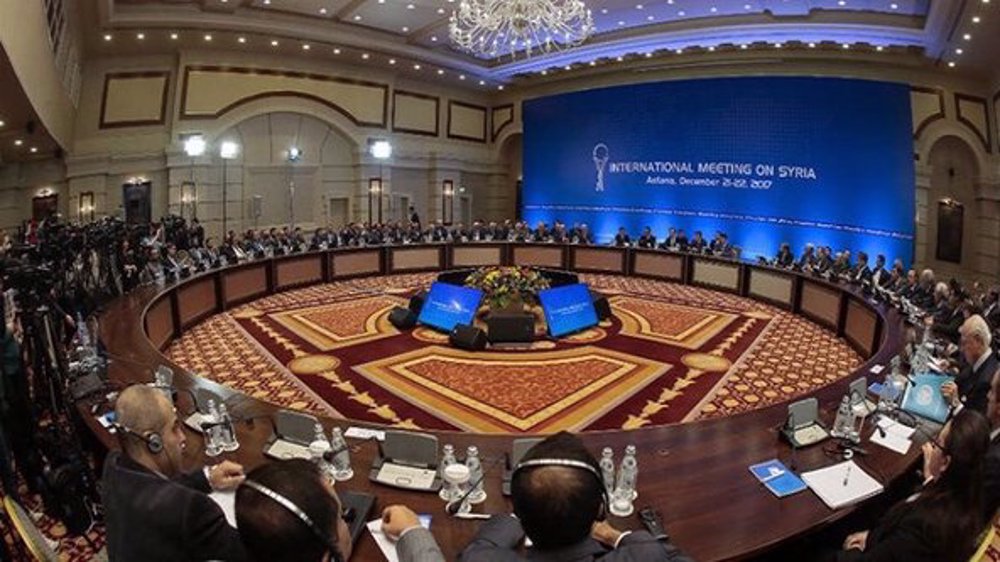




 This makes it easy to access the Press TV website
This makes it easy to access the Press TV website